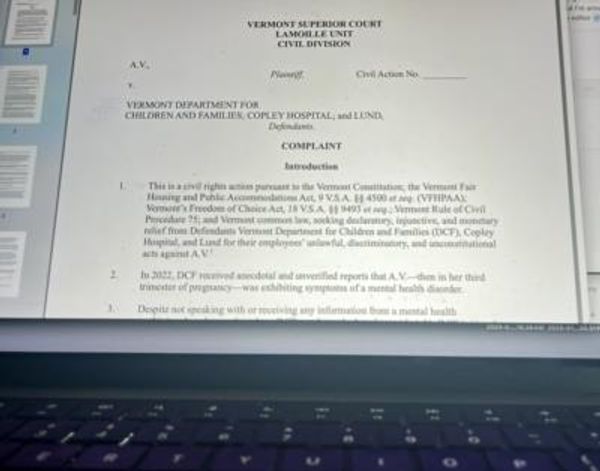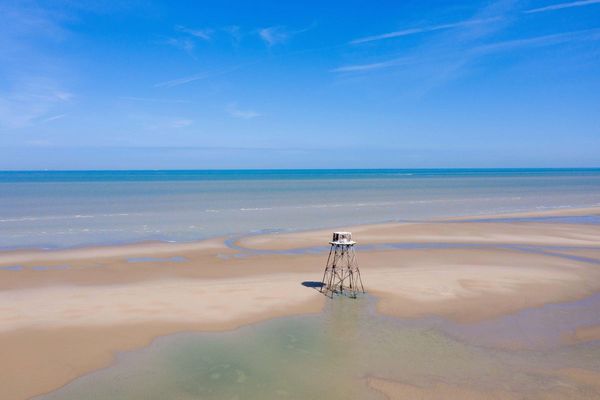
Amarah (Iraq) (AFP) - A judge shot dead with 15 bullets from a Kalashnikov.A policeman gunned down.Local figures from rival political groups and influential armed factions killed.
The murders all happened in January and February in one Iraqi province, Maysan, which borders Iran and where drug trafficking, tribal disputes and political score-settling have combined in a toxic mix reflecting the country's broader political divisions and struggle against corruption.
War-scarred Iraq is trying to recover from years of violence after the 2003 US-led invasion which toppled dictator Saddam Hussein.Normality often hangs by a thread.
But in Maysan, violence is a near-daily occurrence with police and judicial officials regular targets of assassination attempts.
"Drug trafficking and tribal conflicts are the two main causes of the deteriorating security situation in Maysan," independent MP Osama Karim al-Badr said in the provincial capital Amarah.
February has been particularly bloody.
First came the assassination of police officer Hossam al-Aliawi.
Judge Ahmed Faisal, who specialised in drug cases, was next to die.He was headed home when assailants blocked his route and opened fire, a police officer told AFP on condition of anonymity.
A month earlier, a prominent member from the movement of powerful Shiite cleric Moqtada Sadr was killed.
Sadr's bloc emerged as the largest in parliament after October's elections.Months of intense negotiations among political factions since then have raised tensions while failing to form a majority parliamentary coalition that would name a new prime minister to replace Mustafa al-Kadhemi.
'He may be killed'
On the same day that Kadhemi visited Maysan in an effort to address the violence another murder occurred.The victim was a member of Saraya al-Salam, an armed faction affiliated with Sadr.
Kadhemi ordered a reshuffle of top security officials and warned: "We have two choices in front of us: the State or chaos."
Over the past years, Iraq has seen a surge in the sale and use of drugs, particularly in central and southern provinces that border Iran and which often serve as main routes for narcotics, particularly the stimulant crystal meth.
Iraq's interior ministry says Maysan has one of the highest rates of trafficking and consumption of drugs, and the provincial Security chief General Mohammed Jassem al-Zubaidi conceded that Maysan has served as a "route for drug trafficking".
His forces carry out daily raids, and "every day, we confiscate arms," he told AFP.Security forces also arrested dozens of people within the span of days.
But according to activist and journalist Sabah al-Silawi, efforts have been hampered by the dominance of tribal traditions, which run deeper in Maysan than elsewhere.
In a country where tribal allegiances are still deeply rooted while state institutions have been weakened by decades of war, tribes often resort to their own code of conduct and traditions to resolve personal conflicts or even deadly fights, avoiding turning to the authorities.
"An officer cannot perform his duties.He will be threatened by a tribe," Silawi said."His family will be threatened -- he may be killed."
'Big problems'
Such violence extends to the Al-Sheeb border crossing with Iran, where there is fierce competition between rival tribes and armed factions for control, a customs officer said.
"They can threaten to kill employees who might be inclined to prevent trafficking of any kind, whether of drugs or expired food products," said the officer, who preferred to remain anonymous out of concern for his safety.
Influential tribal leader Karim al-Husseini referred to the Al-Sheeb crossing as one of the province's "big problems".
"There has been a lot happening at the border crossing," said Husseini, enveloped in a traditional robe as he sat in a room for receiving guests, under a mosaic of revered Shiite figure Imam Hussein.
Husseini, who claims the allegiance of a thousand clan members, defended what he described as the "peaceful coexistence" that prevails in the province, and rejected criticism of the tribes.
"The border crossing, in principle, should be a source of benefit for the province of Maysan and for Iraq.Not a source of disputes and problems," he said.
Another ingredient in this violent mix -- reflected in the killing of police officer Aliawai -- is rivalry between Iraq's political heavyweights, in a country whose political divisions escalated after the October elections.
In Maysan, like elsewhere in Iraq, political factions "vie for power and economic interests", Silawi said.
Two of Aliawi's brothers were killed in 2019.One was a commander in Asaib Ahl al-Haq -- a powerful faction in the former paramilitary Hashed al-Shaabi group, which alleged fraud after its political arm lost many seats in the parliamentary election won by Sadr's movement.
In response, the leader of Asaib Ahl al-Haq, Qais al-Khazali, challenged Sadr and demanded that he clear himself of any ties with the killers and call for their arrest.
Sadr dispatched a delegation to Maysan to restore calm.







